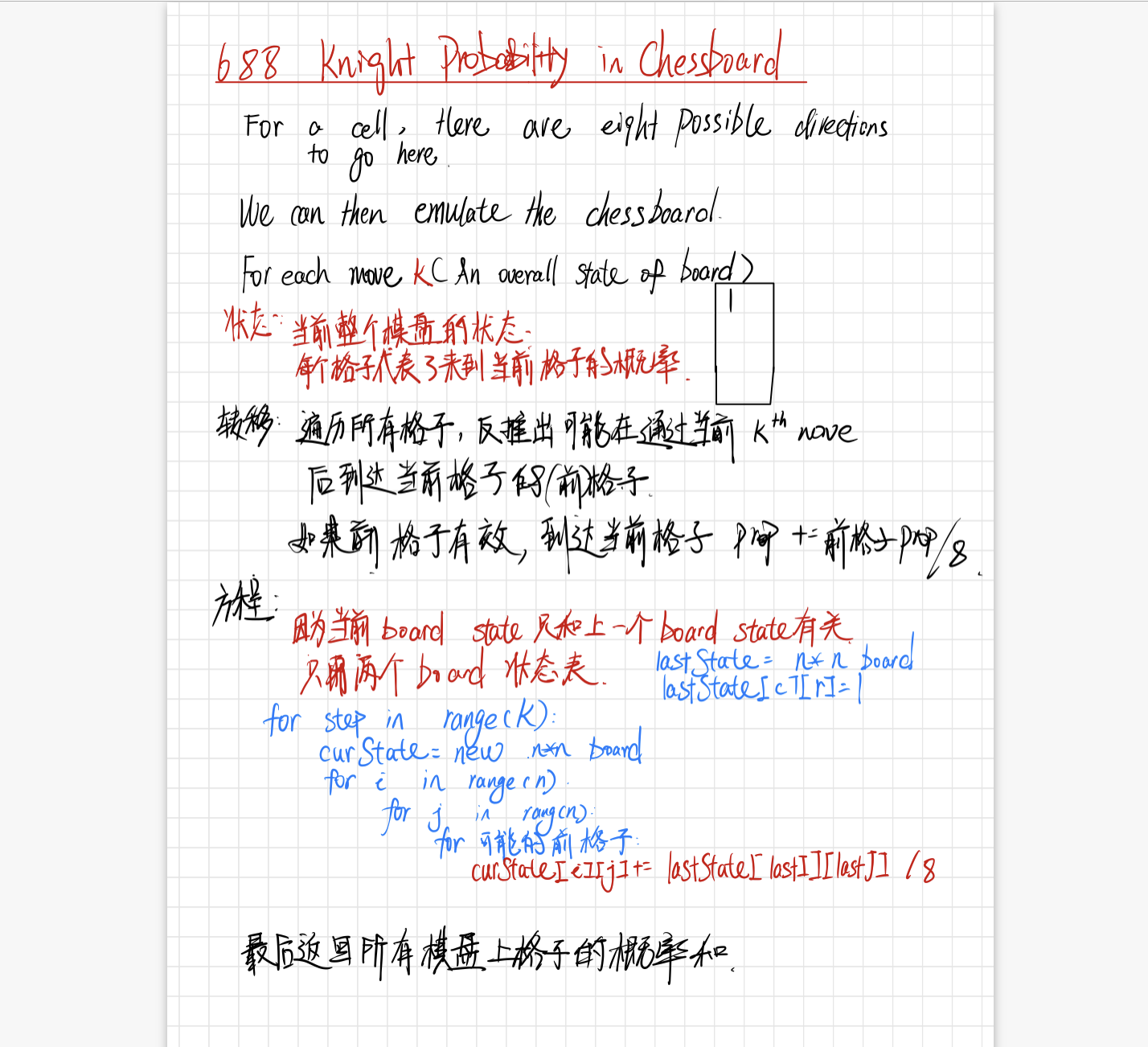思路:
这是一个概率dp问题。
方法: 动态规划
dp数组
3维的dp数组。
dp[i][j][k]: 跳k步后到达格子(i,j), 此时继续按"日"字向前跳, 跳到K步时留在棋盘上的概率之和(走法的总概率)。
递推关系:
f(i, j, k) = ∑1/8*f(x, y, k + 1)
做逆序遍历。
代码:
实现语言: C++
double f[25][25][101]; /* dp[i][j][k]: 跳k 步后到达格子(i,j), 此时继续按"日"字向前跳, 跳到大K步时留在棋盘上的概率之和(走法的总概率)。 */
class Solution {
public:
double knightProbability(int N, int K, int r, int c) {
memset(f, 0.0, sizeof(f));
for (int i = 0; i < N; i++)
for (int j = 0; j < N; j++)
f[i][j][K] = 1; /* 预处理边界 */
int dx[] = {-2,-1,1,2,2,1,-1,-2}; /* 8组方向向量 */
int dy[] = {1,2,2,1,-1,-2,-2,-1};
for (int k = K - 1; k >= 0; k--)
for (int i = 0; i < N; i++)
for (int j = 0; j < N; j++)
for (int u = 0; u < 8; u++) /* 枚举8个方向, 累加其中合法方向的概率 */
{
int x = i + dx[u], y = j + dy[u];
if (x >= 0 && x < N && y >= 0 && y < N)
f[i][j][k] += f[x][y][k+1] / 8;
}
return f[r][c][0];
}
};复杂度分析
- 时间复杂度: O(k*N^2)
- 空间复杂度: O(k*N^2)

688. “马”在棋盘上的概率
入选理由
暂无
题目地址
https://leetcode-cn.com/problems/knight-probability-in-chessboard/
前置知识
题目描述
现有一个 “马”(也译作 “骑士”)位于 (r, c) ,并打算进行 K 次移动。
如下图所示,国际象棋的 “马” 每一步先沿水平或垂直方向移动 2 个格子,然后向与之相垂直的方向再移动 1 个格子,共有 8 个可选的位置。
现在 “马” 每一步都从可选的位置(包括棋盘外部的)中独立随机地选择一个进行移动,直到移动了 K 次或跳到了棋盘外面。
求移动结束后,“马” 仍留在棋盘上的概率。